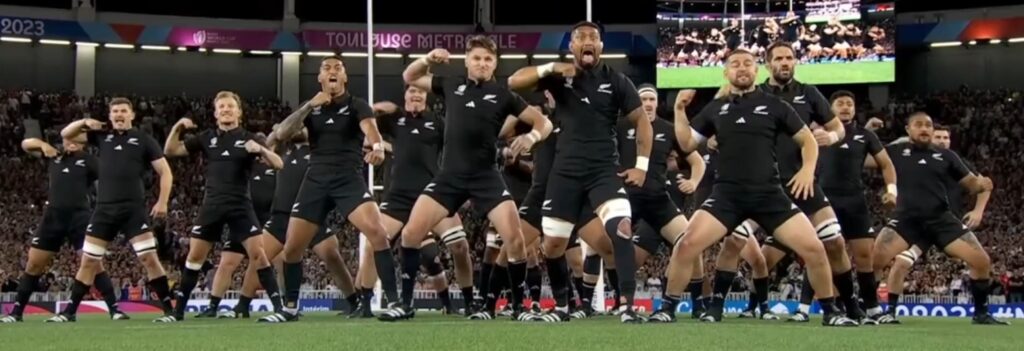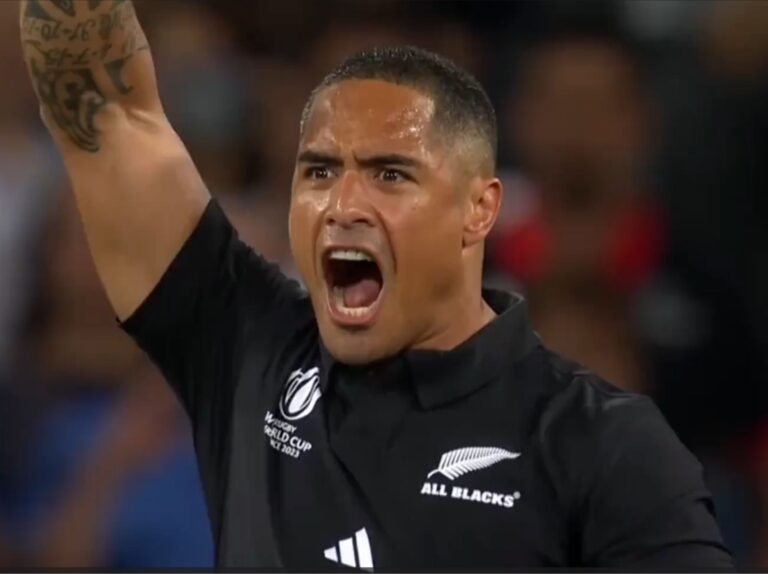What Rugby Strategy And Tactics Can Teach Us About Smart Management!
The New Zealand national rugby team, also known as the All Blacks, perform a traditional Maori war dance called the „Haka“ before every game.
The Haka is more than just a dance. It is a powerful expression of the Maori culture and identity.
It is also a way of boosting the confidence and energy of the performers.
The All Blacks Rugby Team uses the Haka to prepare for every match, channelling their collective strength, focus and spirit into the game!
Rugby Strategy Insights for Smart Management
You can learn from this example and use a similar technique in your business. Imagine how your team would feel if you had a special ritual that you performed together before every important project. A ritual that would unite you, motivate you and inspire you to achieve your goals!

Explore More Rugby Strategies & Tactic Insights for Smart Managers
Rugby is a sport that requires teamwork, strategy and leadership. It’s not just about brute force and speed, but also about smart decisions and effective communication. As a business consultant, I believe that managers can learn a lot from rugby tactics and strategies. Here are some of the lessons that rugby can teach us:
Learn more about:
Emergency Management | Wiederaufbau Produktionsunternehmen CZ
Three good reason to adopt Rugby strategies into your business
- Adapt to the situation. Rugby teams have to adjust their game plan according to the weather, the opponent and the score. They have to be flexible and creative, and not stick to a rigid script. Similarly, managers have to adapt to the changing market conditions, customer needs and competitive threats. They have to be ready to pivot, innovate and experiment, and not rely on outdated methods.
- Communicate clearly and frequently. Rugby players have to communicate constantly with each other, using verbal and non-verbal cues. They have to share information, coordinate actions and give feedback. They also have to listen to their coach and follow instructions. Likewise, managers have to communicate effectively with their team members, stakeholders and customers. They have to provide clear goals, expectations and feedback, and also solicit input and feedback from others.
- Trust your team. Rugby teams are composed of different players with different roles and skills. They have to trust each other and work together as a unit. They have to respect each other’s strengths and weaknesses, and support each other in times of difficulty. Similarly, managers have to trust their team members and empower them to do their best. They have to delegate tasks, provide resources and recognition, and foster a culture of collaboration and mutual support.
> Read more about smart management: Five good reasons for Interim Management during a business transformation!




